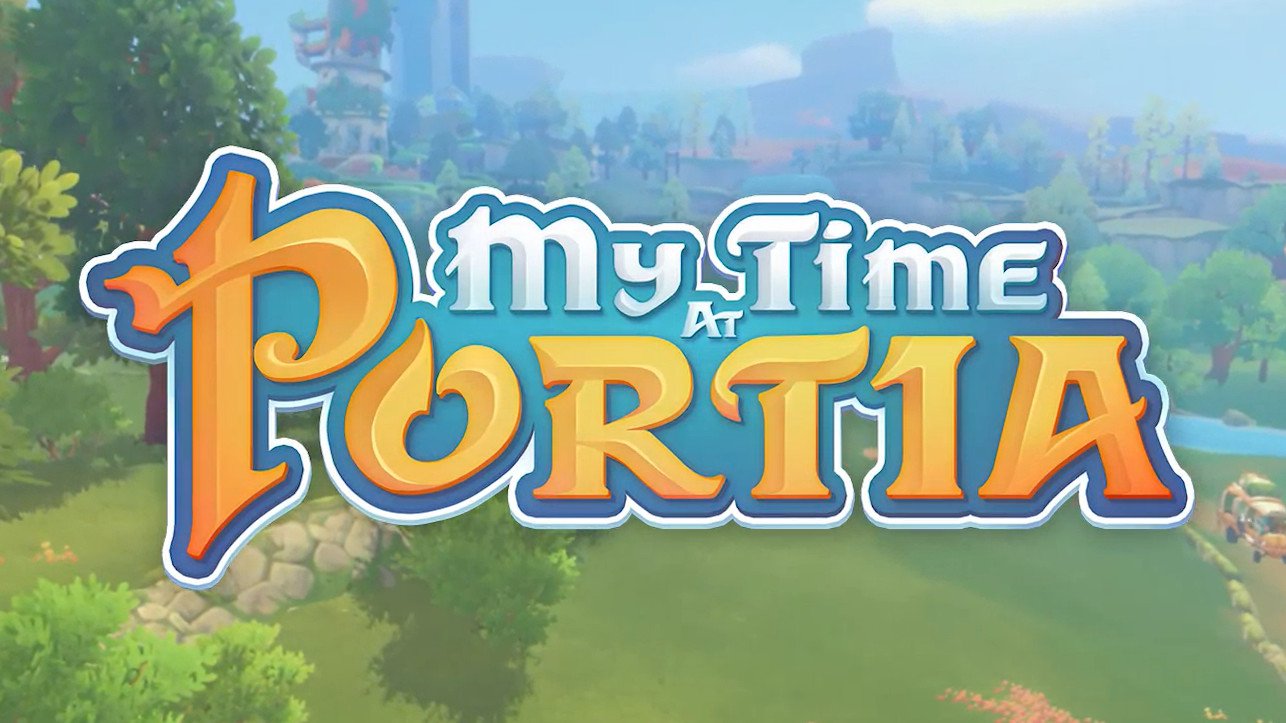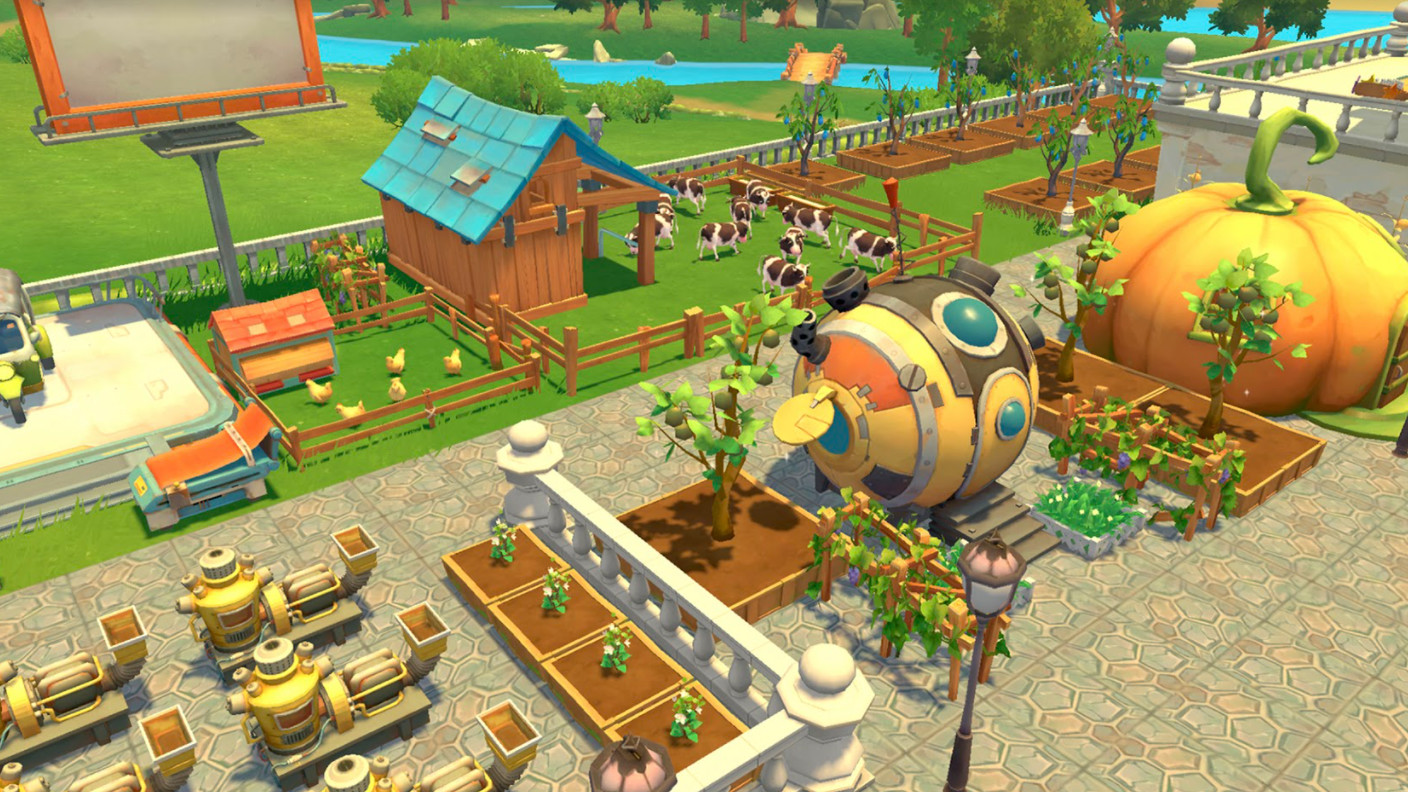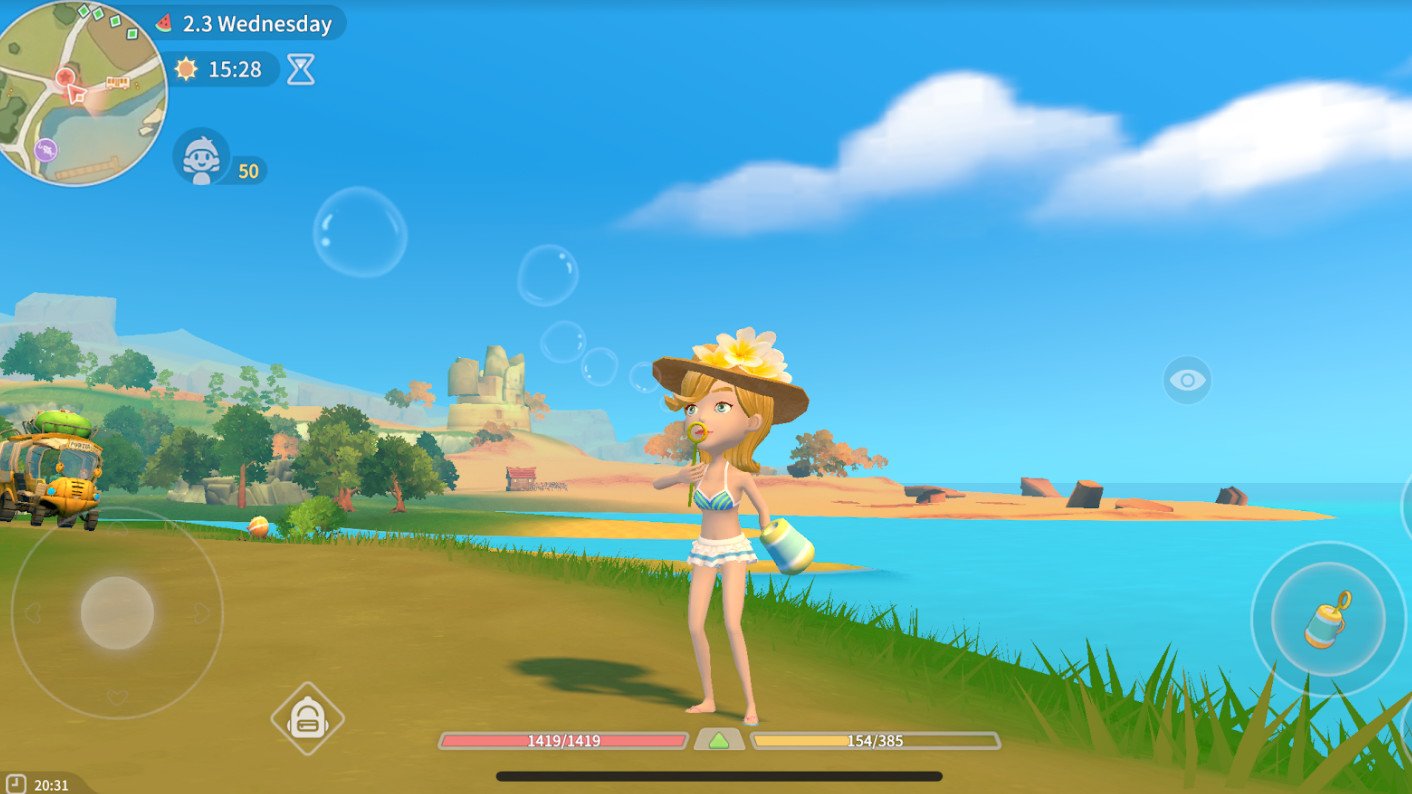Beloved life sim My Time at Portia finally makes its way to Android
As it turns out, there are more life sims out there than just Stardew Valley. Who knew, right?
If you're like me and you've never played a single "life sim" outside of Stardew Valley and/or Animal Crossing, it can be a gamble to break out of those shells and try new games within the genre. After all, why would you need another sim game if you've already got two of the best ones on the market? Well, My Time at Portia is here to answer that question, and I will try my best to give it room to breathe without constantly comparing it to the established titans of the genre.
The setup to My Time at Portia is laughably in line with Stardew Valley: a relative has left you a piece of property in a small town, so you set off for adventure, leaving your old life behind in the dust. In this case, you've inherited a workshop right outside the gates to the bustling town of Portia (Por-tee-ah? Por-shee-a? Everyone you talk to pronounces it differently, so pick whichever one you like).
My Time at Portia is a life simulator where you build and expand your workshop business, foster relationships, explore, and fight your way through many happy days.
From there, you go about establishing yourself as the town of Portia's new "builder"; a catch-all term that has you crafting everything from planter boxes to entire bridges. You take commissions from other townspeople and/or sell the things you make to generate income and grow your business. Certain quests will also help you progress within the world at large, giving you even more places to explore, items to collect, and people to meet.
What makes My Time at Portia somewhat unique is that it hits on so many different genres within one game. You've got your farm-sim activities like gathering resources, planting, and crafting, then you've got your social-sim activities like building relationships with the townsfolk, on top of action-RPG aspects by way of hack-n-slash combat and skill trees. In short, My Time at Portia gives you more. More complex crafting capabilities, more characters to interact with, more world to explore, and more progression for your own character. With a few improvements here and there, this game could easily be among the best Android games available.
My Time at Portia review:My Time at PortiaBottom line: While lacking some of the charm and polish of games like Stardew Valley and Animal Crossing, My Time at Portia stands on its own two feet by blending RPG elements and a more open world into what otherwise could have been "just another farming sim."
The Good- Addictive, satisfying gameplay loop
- Deep crafting system with a good balance of short and long team goals to work toward
- Large map to explore and a robust cast of interesting characters
- Graphics aren't great, especially character models
- Prone to severe bouts of stuttering on mobile (Galaxy S9), especially while sprinting
- Initially very overwhelming. Tutorials are not intuitive and would benefit from a "show, don't tell" approach
- Inventory limitations feel like a needless hindrance, especially in a cramped UI
Price TBD at Google Play Store
What you'll like about My Time at PortiaI've already funneled quite a few hours into My Time at Portia and feel like I've barely scratched the surface of what the game has to offer. Once you get past the first few hurdles of getting through the tutorials and completing your first few commissions and side quests, you'll find that the game settles into a highly addictive rhythm.
| Category | My Time at Portia |
|---|---|
| Title | My Time at Portia |
| Developer | Pathea Games/Nuverse |
| Publisher | Pixmain |
| Genre | Life Sim |
| Minimum Requirements | Varies with device |
| Game Size | Varies with device |
| Play Time | 60+ hours |
| Players | Single Player |
| Launch Price | TBD |
Taking commissions is where I've been spending most of my time, which is made up of tasks within tasks, within tasks. To demonstrate, let's take a look at the first big commission, building a bridge to Amber Island. You just have to make two end pieces and one middle connecting piece to install the bridge. How hard can that be, right? Well, just to build the bridge's end pieces, you'll need copper pipes and hardwood planks.
So how do you get copper pipes and hardwood planks? You need to run copper bars through your grinder and raw hardwood through your cutter, obviously. But how do you get copper bars and hardwood? First, you'll need to smelt copper ore in your furnace for the copper bars, and for the hardwood, you'll have to chop down large trees. But as it turns out, your flimsy axe isn't good enough to chop down the big trees, so you'll need to smelt some bronze first to make an improved axe. So now that you have your improved axe and the hardwood you need, you just have to go mine the copper ore to smelt the copper bars, refine the bars into pipes, and then finally put it all together to make the bridge.
The gameplay loop is highly addictive and satisfying, especially when it comes to commissions and crafting.
This may sound far too tedious and arduous for some folks, but to me, these kinds of multi-part missions are music to my ears. My Time at Portia runs on an in-game day/night cycle where each day is about 20 minutes long. Things like smelting and refining raw materials take precious minutes to complete, so once you've finally gotten the few products you need for a task, it might already be nighttime, and you have to turn into bed before the game forces you to go to sleep. That means that the next morning, you already have some finished products to start working with for the next piece of the puzzle, and you just keep playing and playing until it's hours later in the real world and you're not sure how you got there.
That being said, the game does you a solid by saving your progress very regularly. I've had to log out on a dime and have been pleasantly surprised to find that my progress is almost all still there the next time I log back in, even if I had fully closed the game out.
Admittedly I haven't spent half as much time building relationships as I should, but interacting with your neighbors is another fun, simple way to pass the time. There's a fairly robust cast of NPCs in My Time at Portia, a fair amount of whom are obviously dating material. You can chat with them, give them gifts (which they may or may not like), and even play mini-games of rock-paper-scissors and have sparring matches with them (yes, you physically fight them, but it's all in good fun!).
Through chatting, gift-giving, and spending time with your neighbors, perhaps a romance can take root?
Another unexpected nice touch from My Time at Portia was the combat, which was shockingly fun. It's just a basic hack-n-slash approach, but the button mashing feels great and had me hunting down poor, defenseless llamas for the sheer thrill of the kill. This also brings us around to the more RPG-like elements of the game, with the inclusion of a leveling system and skill tree focusing on Fighting, Gathering, and Socializing.
Through everyday tasks, completing commissions, and winning fights, you gain XP and slowly start to level yourself up. This, in turn, gains you skill points, which you can spend on your skill tree to give yourself a leg up in any of the aforementioned areas. Skills run the gamut from increasing the rate at which you XP gain, increasing damage dealt in combat, reducing materials required for crafting, and even increasing the likelihood that an NPC will accept your proposal!
There's a ton of later game content that I haven't even had a chance to touch on yet, like ruin diving, expanding your workshop, keeping livestock, marriage, and more, so you'll just have to play the game for yourself to find out just how much it has to offer!
What you won't like about My Time at PortiaI've been having a ton of fun with the game, and it's more or less exactly what I expected, but there are a few notable areas for improvement. One of my main complaints is that the game doesn't perform very well on my Samsung Galaxy S9. To be fair, my phone is a few years old and wasn't a top-of-the-line gaming phone in the first place, but it seems like the severe frame drops, and lag can't just be me. These bouts of stuttering are most obvious while sprinting, so I sometimes intentionally don't run just to avoid dropping frames. We also know that the game has had similar performance issues on the Switch version, so this likely isn't just a case of old-phone syndrome.
The game suffers from some noticeable performance issues, with lagging and dropped frames, particularly while sprinting.
The other problem is with the game's UI, which feels crowded on its new small-screen home. The game has a lot happening (more is more, right?) even in just the main view, from objective trackers, on-screen virtual controls, mini-map, inventory shortcut, and more. Speaking of which, inventory management is quite a chore, and not a fun one in this case, as the inventory limitations force you to constantly shuffle around your items between your backpack, your main inventory, and your stored inventory, which was a level of laboriousness that was one step too far, even for me.
You manage all of this through double taps and dragging and dropping, which functions just fine but can be fairly non-intuitive when you're first starting out. This brings us to the tutorials, which I would classify as downright not helpful. Tutorials are very text-heavy, which doesn't translate well when crammed into the restraints of the smaller UI. They're also incredibly overwhelming for players who are just starting out. I often found myself skipping tutorials to figure things out on my own rather than trying to slog through another overly confusing explanation of a simple concept.
The graphics aren't amazing, and the UI can feel a little cramped when it comes to inventory management.
My last complaint is a petty one, but I feel it's worth pointing out. You'll rarely find me complaining about this, but I am not impressed with the 3D graphics. The world itself looks decent enough, with a nice color palette and great attention to detail. Still, textures are fuzzy, and shapes are mostly rudimentary polygons with just a light coat of digital paint on top. This is most noticeable with the character models, which occasionally had me laughing out loud. There's just something undeniably creepy about the apparent lack of eyelids on so many characters, giving them a lifeless, uncanny valley vibe.
Paired with voice acting that isn't stellar either, I found myself thinking that this game would have fit right in with the Gamecube era of games. That's not a bad thing, I adore that period of gaming, but all of this is to say that My Time at Portia feels like it's a few years behind in the graphics and voice acting departments. However, please note that I've been playing the pre-release version, so the final version may be different from what I've experienced so far.
Should you play My Time at Portia? 3.5 out of 5In spite of its flaws, I am still playing My Time at Portia, and I intend to keep playing it for many, many more hours. I have no doubt that I will eventually burn myself out on it, just like I did with Animal Crossing and Stardew Valley, but given my play habits, that probably won't happen for at least another 50-80 hours. Nevertheless, my Time at Portia packs an impressive punch for a mobile life-sim and can keep you entertained for a good long while.
Ther performance issues and occasional bugs are annoying but not game-breaking, so my hope is that the developer will continue to support the game and improve the mobile experience as more players start adopting it. I've heard that the Nintendo Switch version is prone to brutally long loading times, but so far, I haven't encountered that same issue on mobile, so let's hope this is a good sign that the mobile optimization is perhaps better.
Between gathering, crafting, socializing, and exploring, there's no shortage of ways to play the way you want to. You can take things slow and have a casual, zen experience, or you can go hardcore into optimizing your workshop and becoming the richest bastard in the whole dang city! Thanks to its "more is more" approach, My Time at Portia has something for just about everyone, and I would definitely recommend it to anyone looking for a seriously engrossing mobile game.
My Time at PortiaBottom line: A genre-bending sim game that leans heavily on crafting, combat, and relationships, My Time at Portia deserves your consideration, especially if you're already into games like Stardew Valley and Harvest Moon.
Price TBD at Google Play Store



